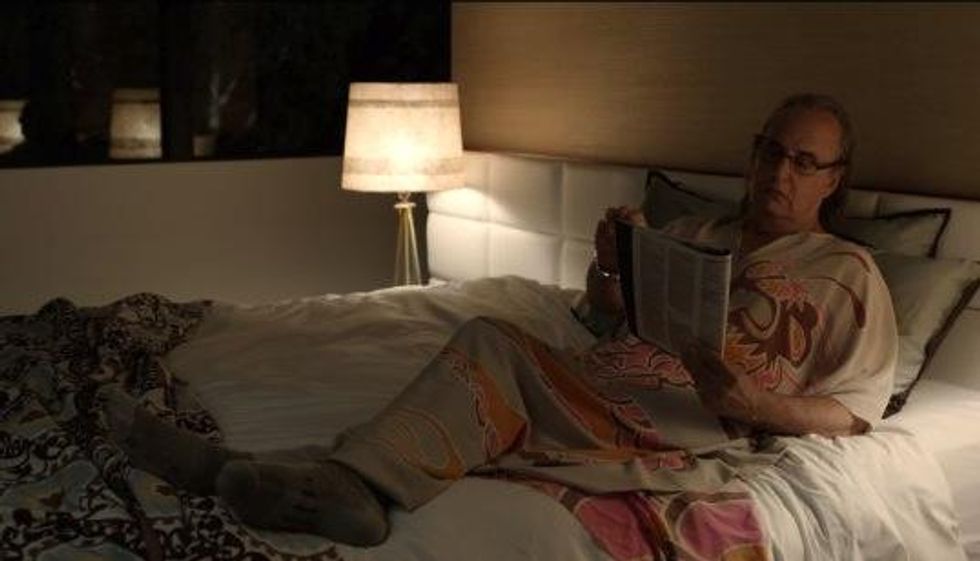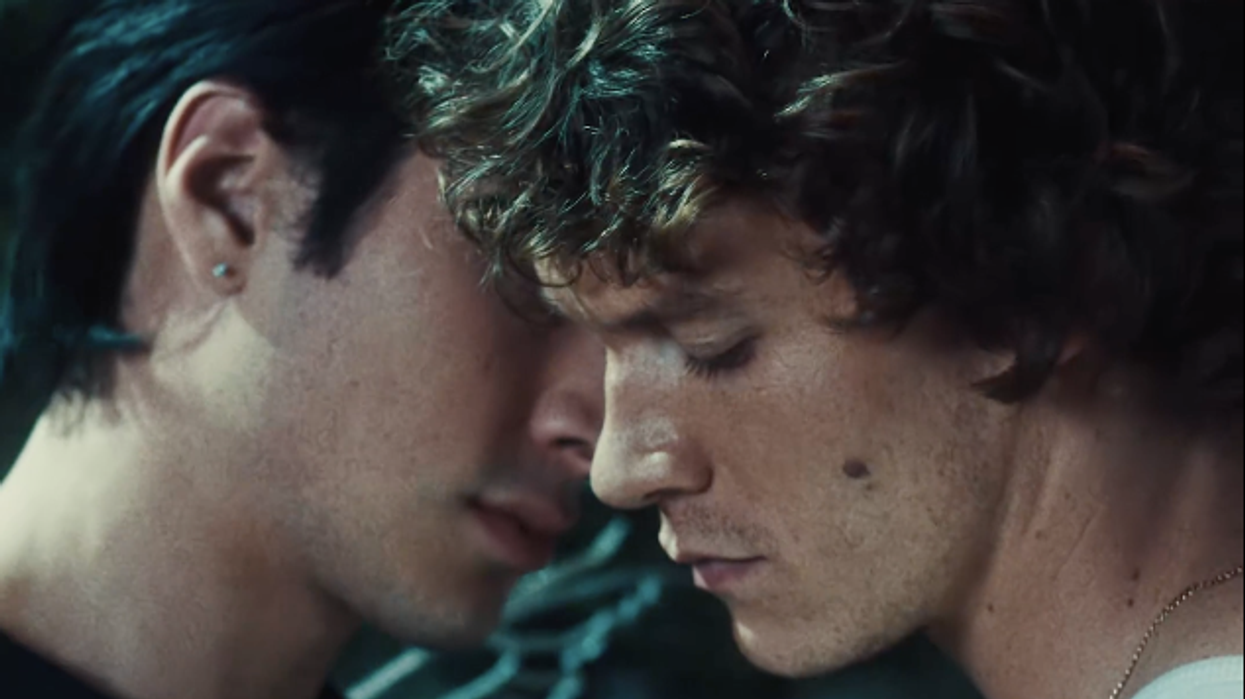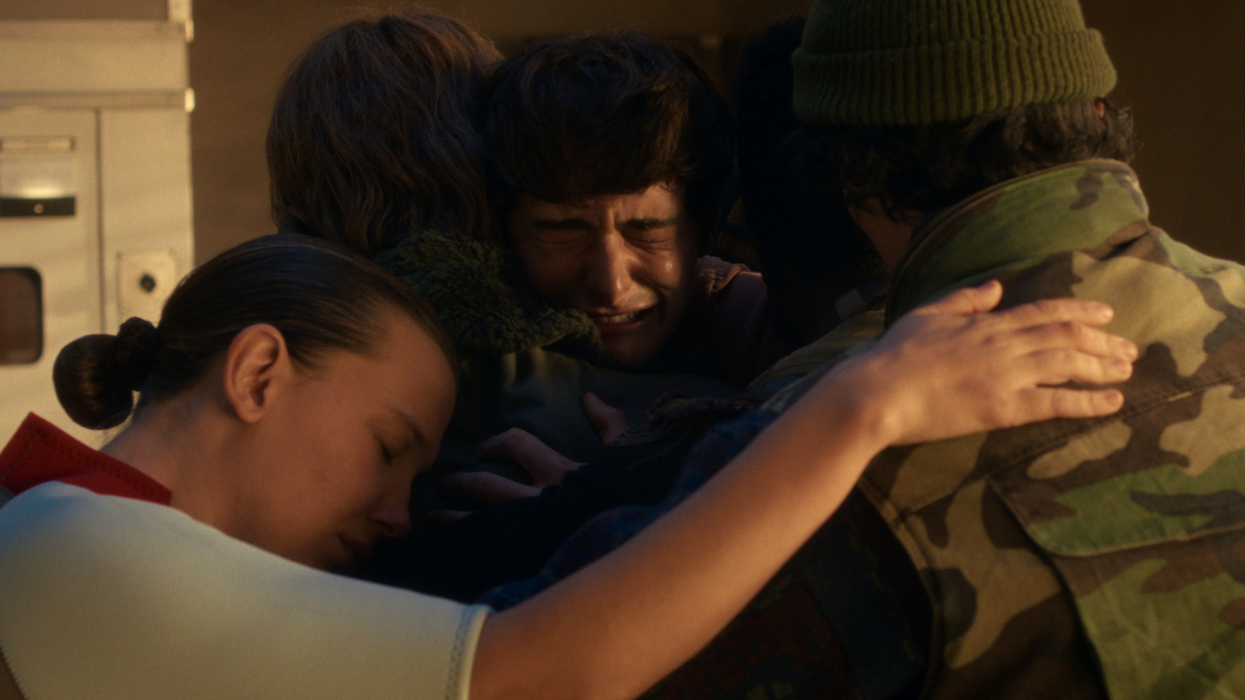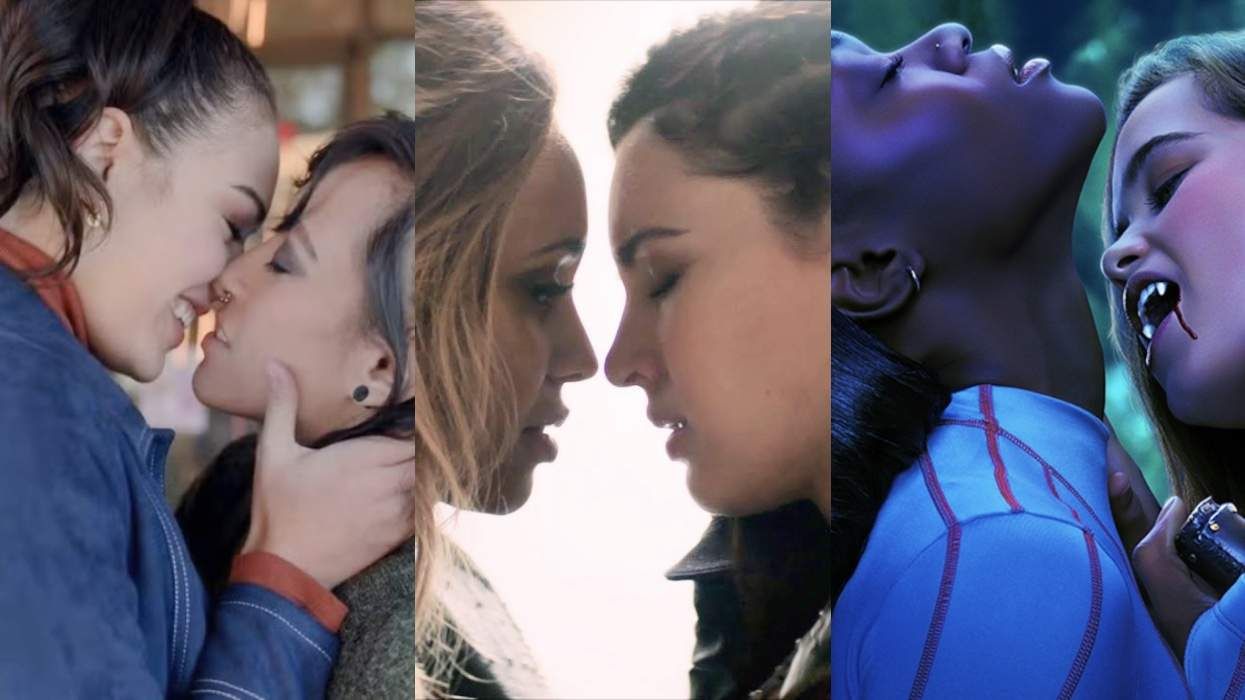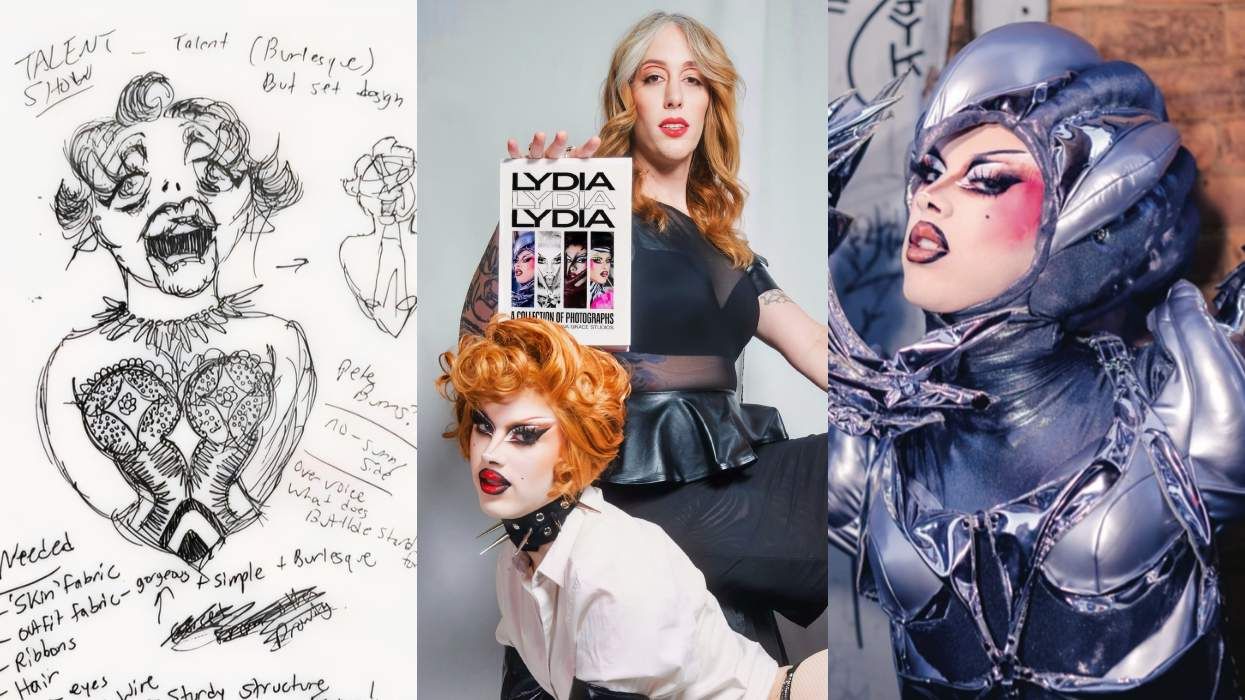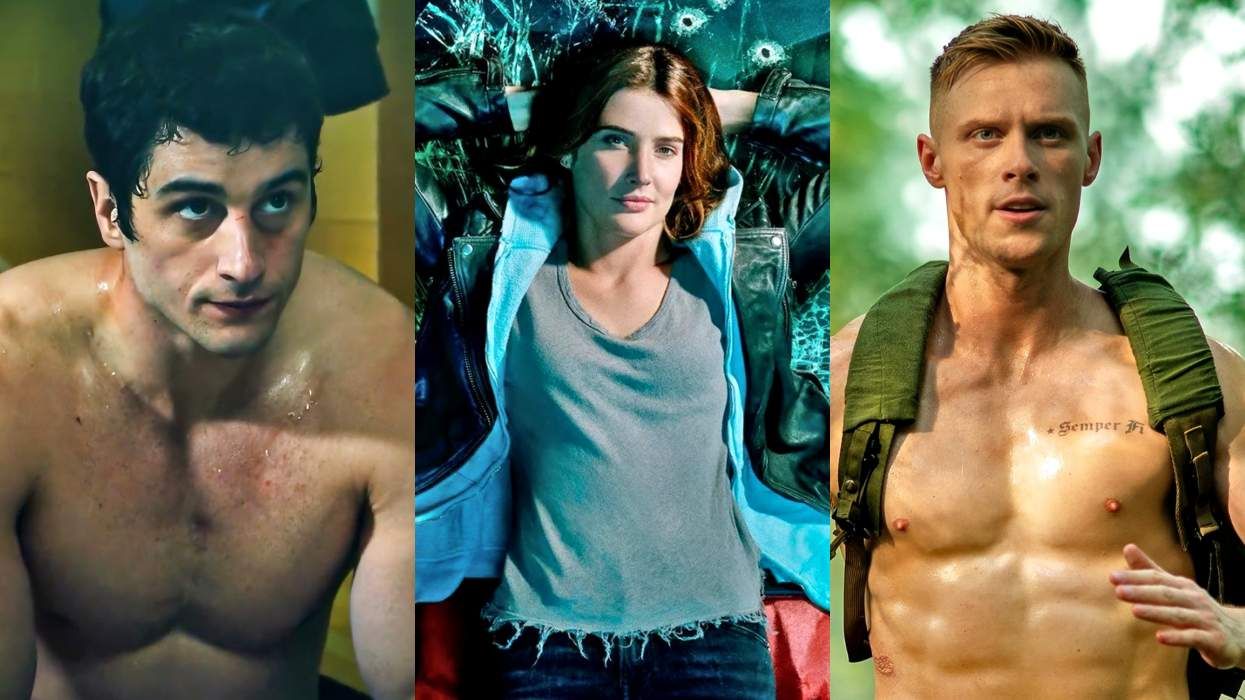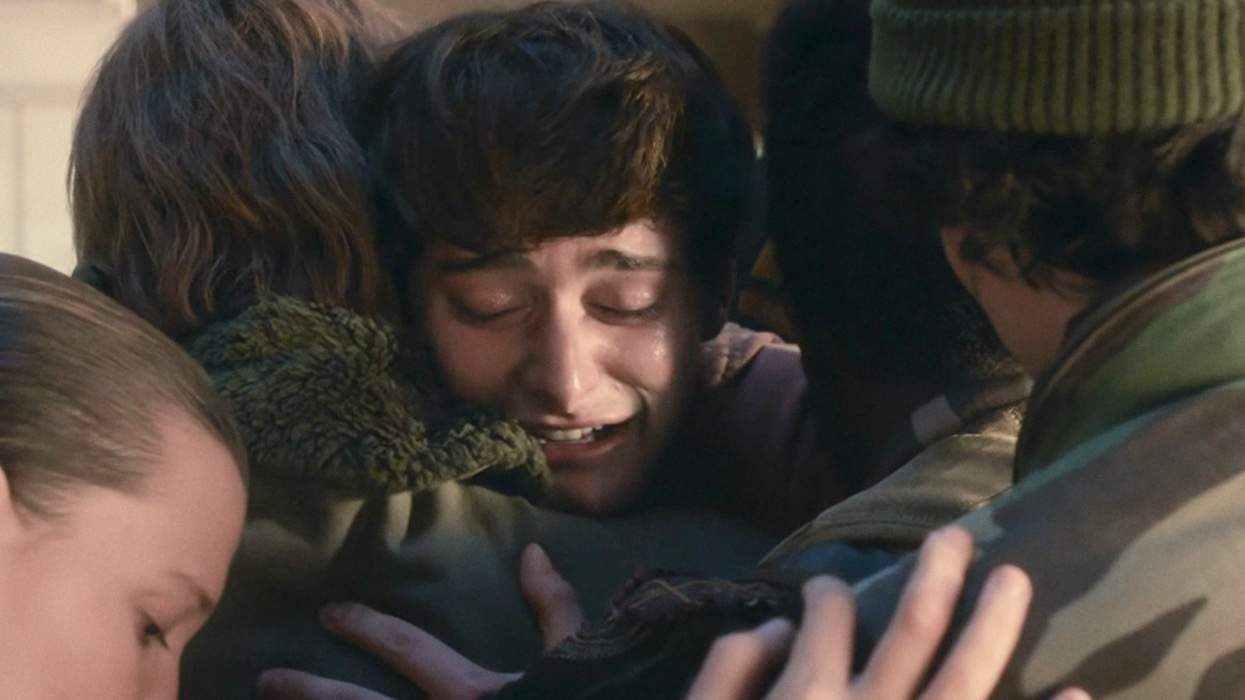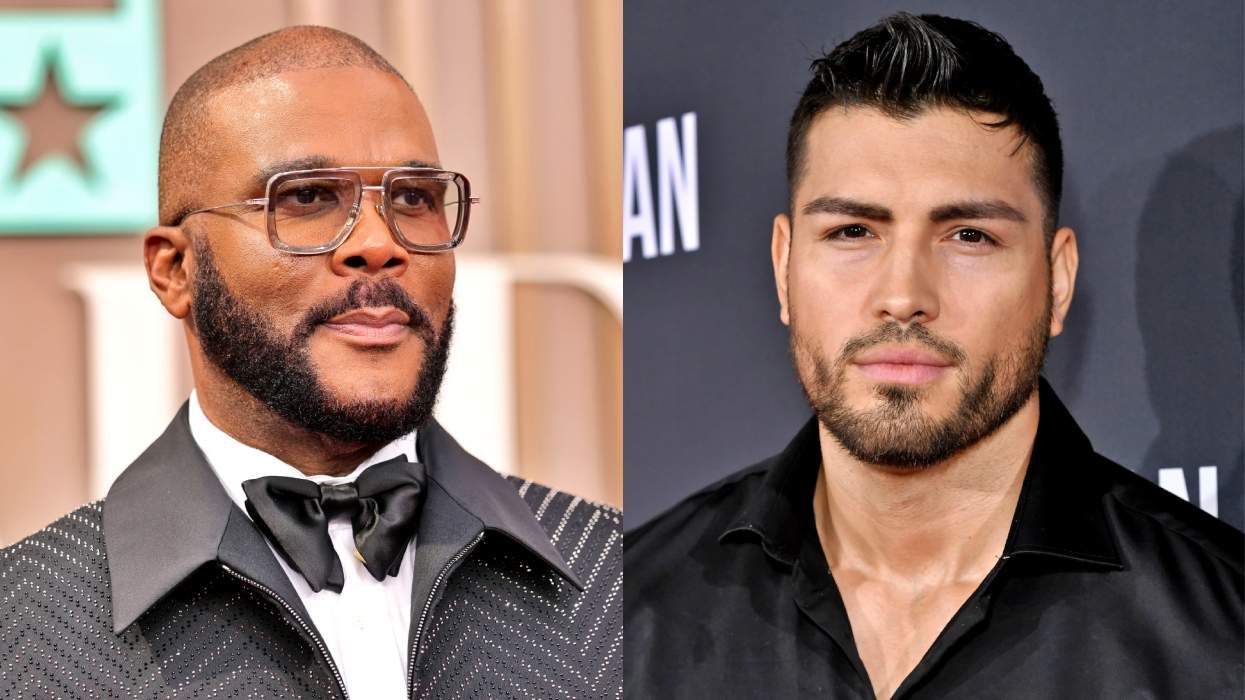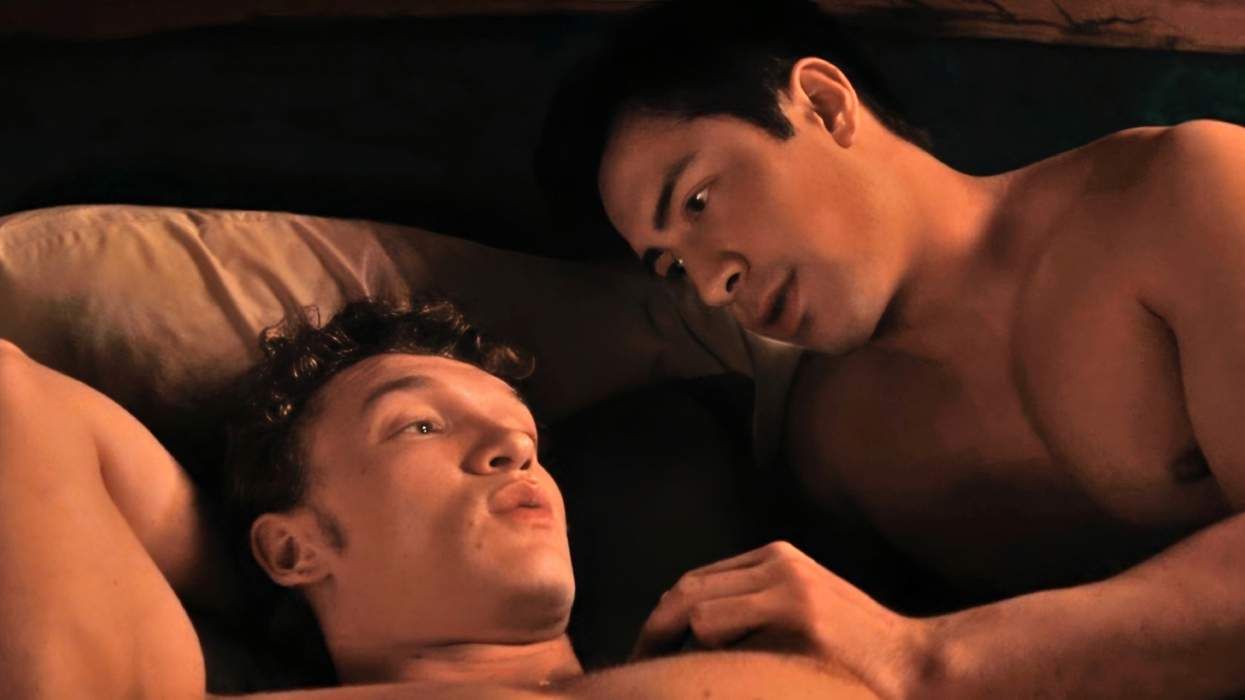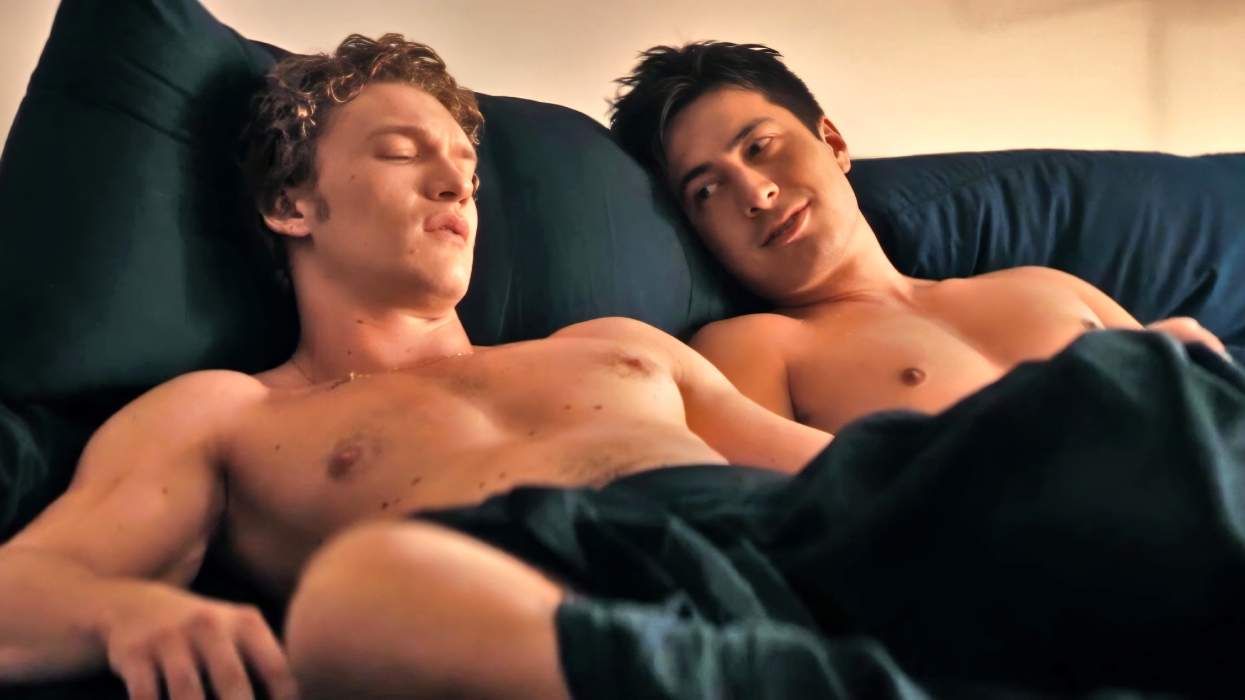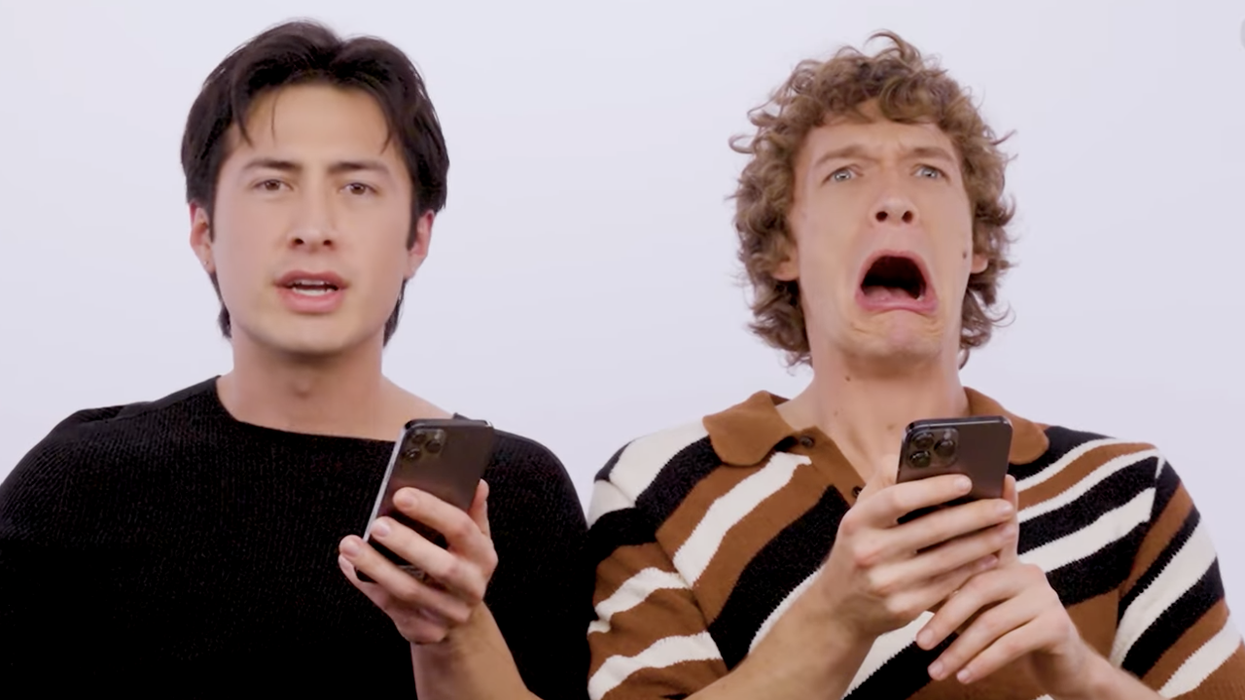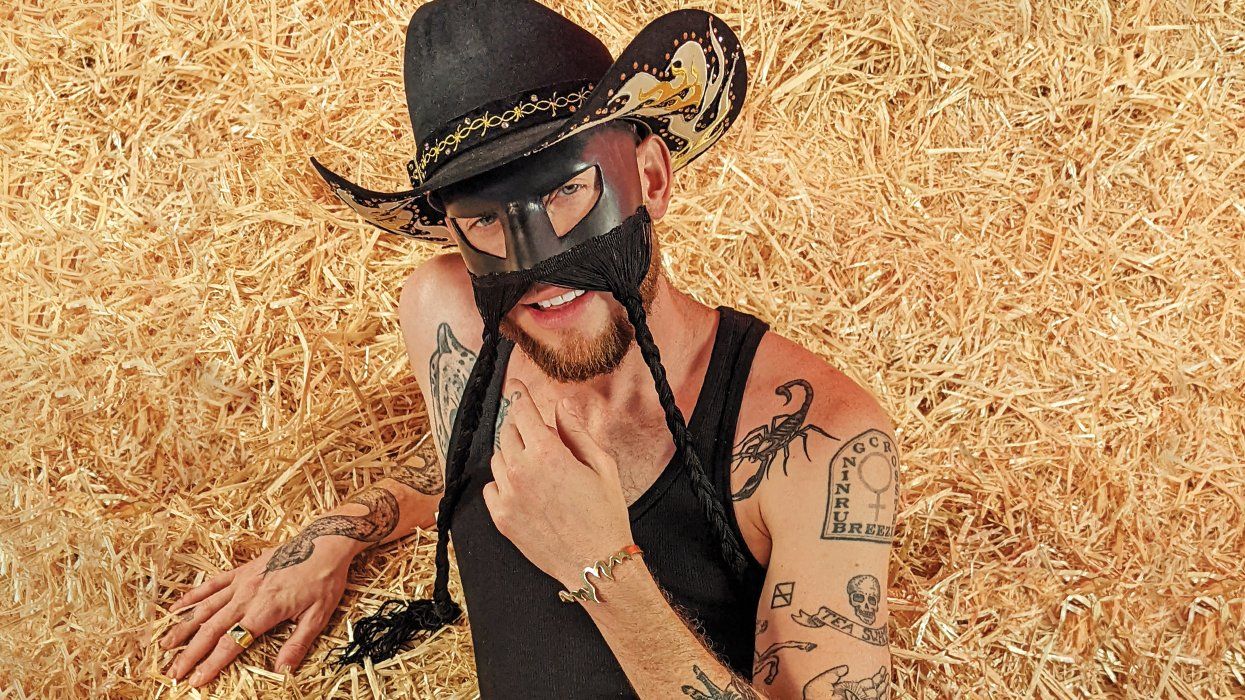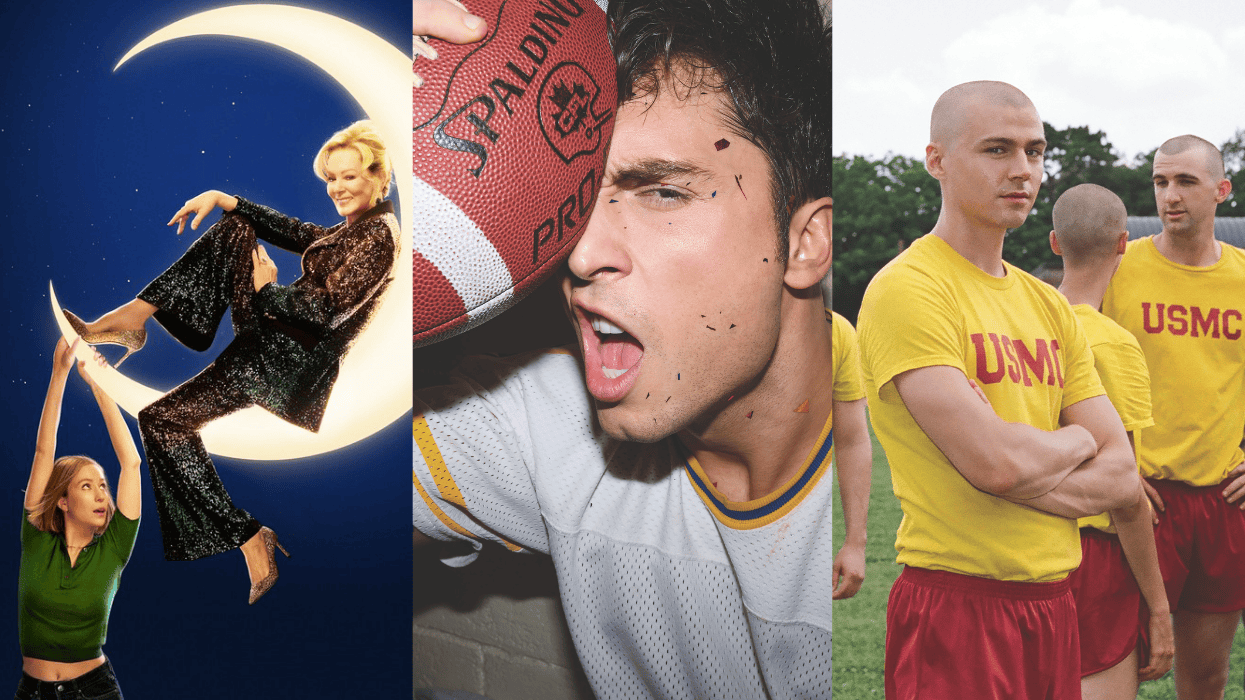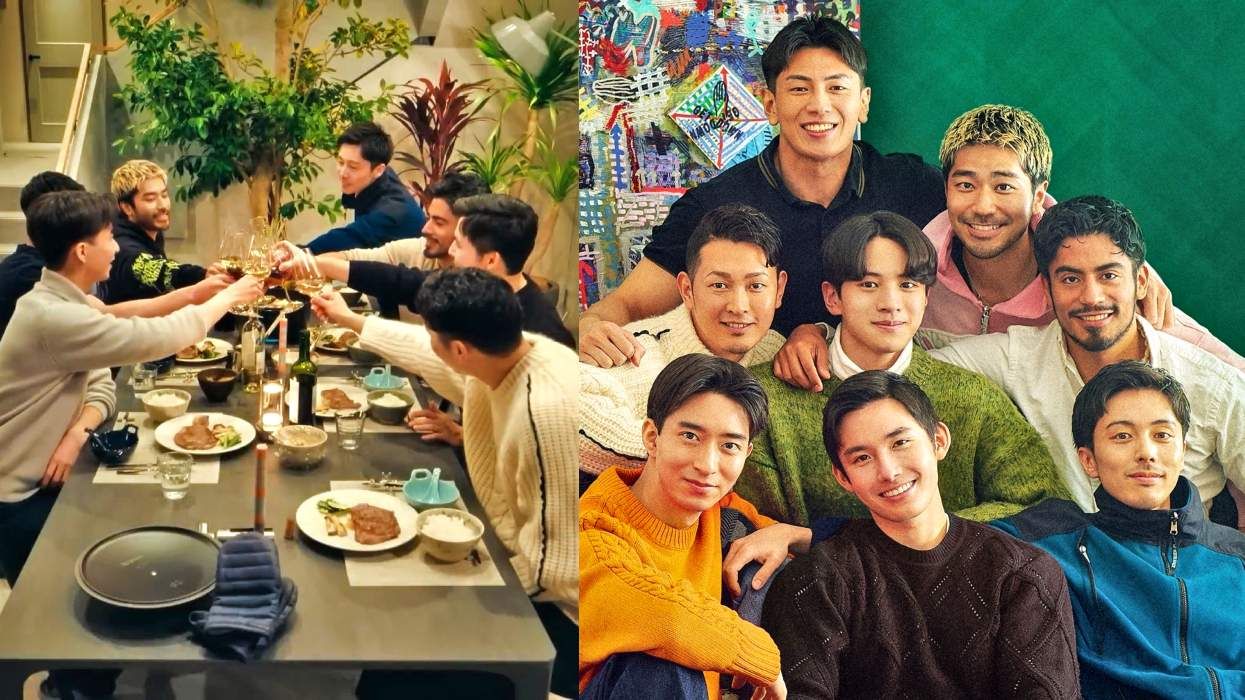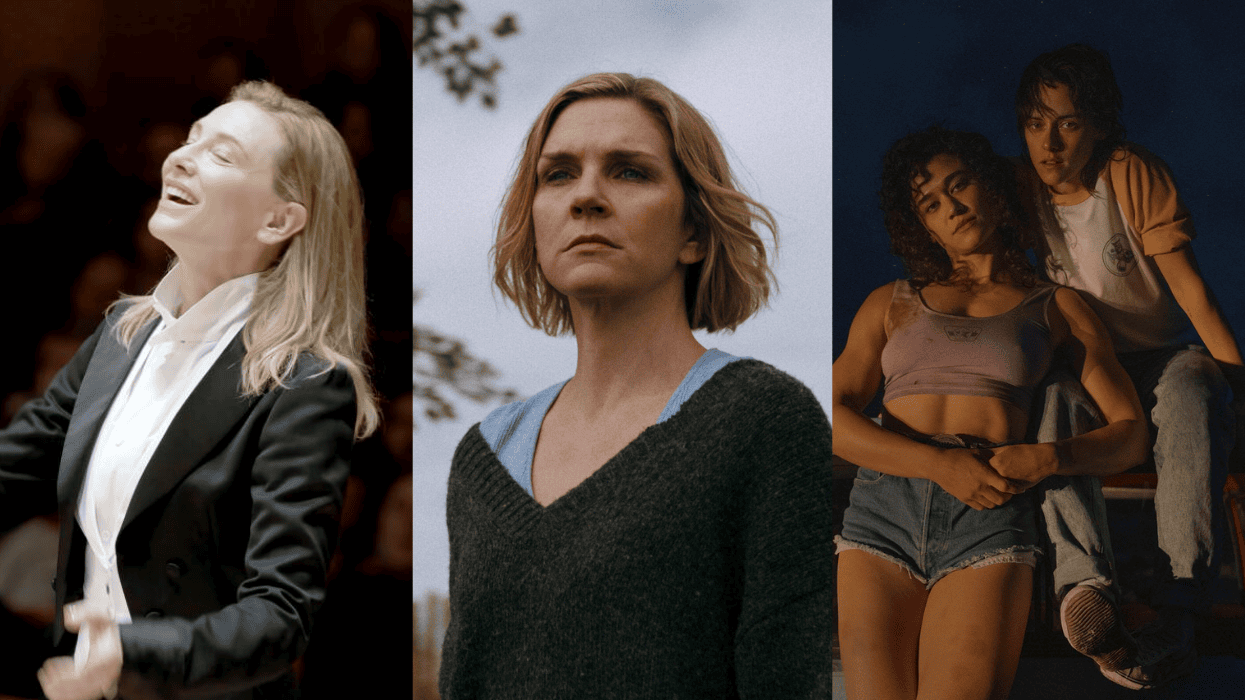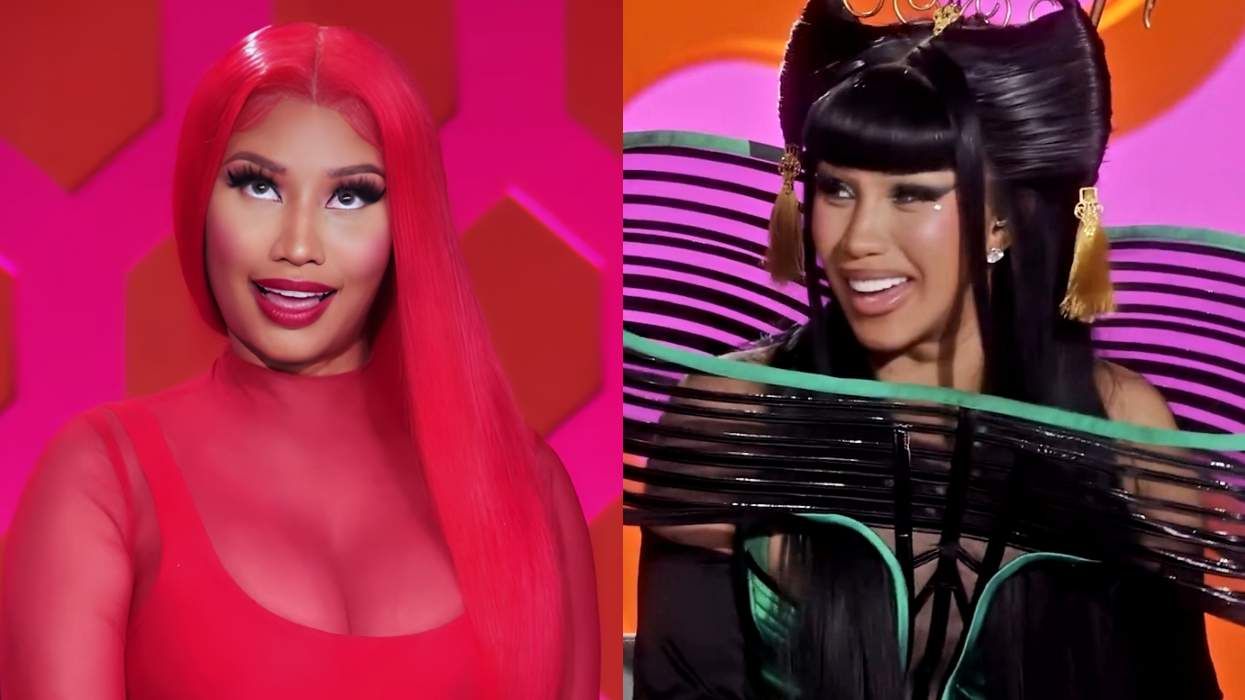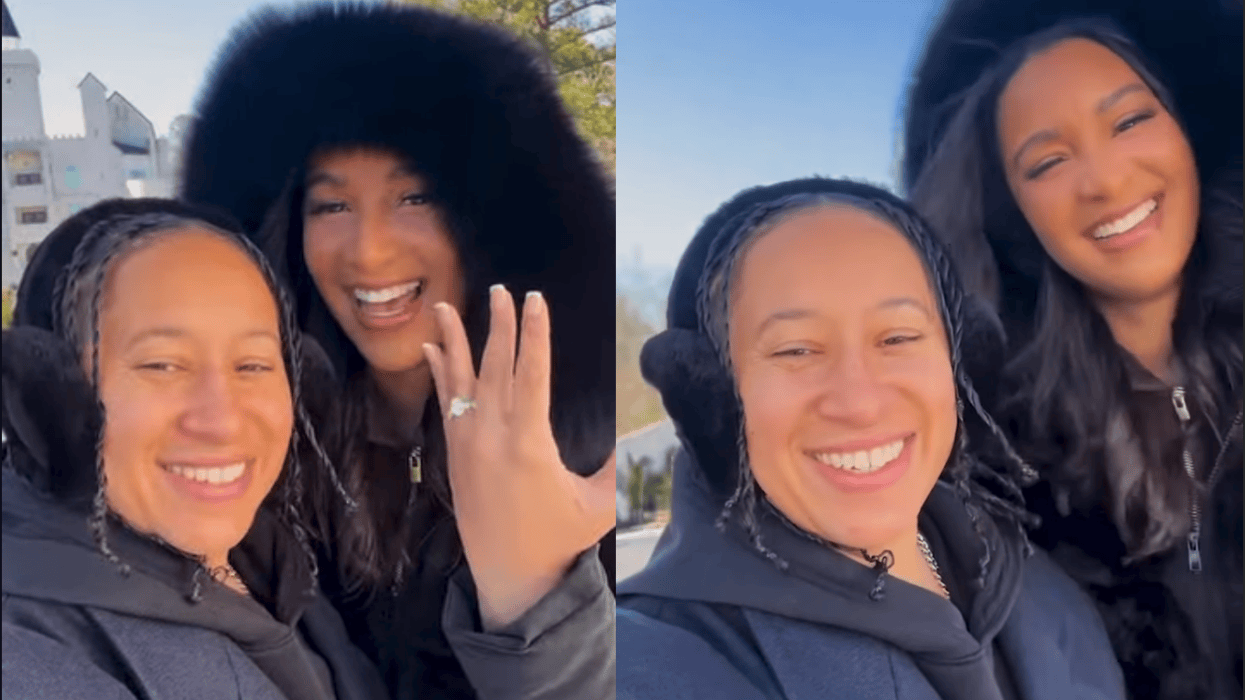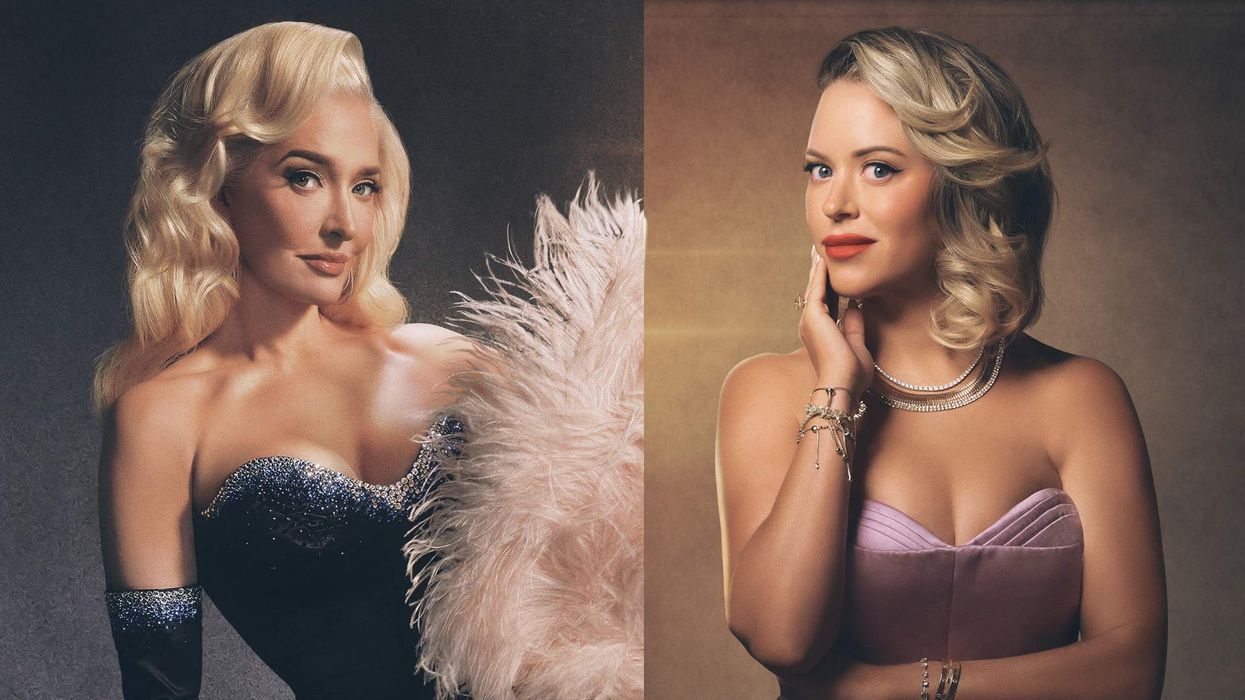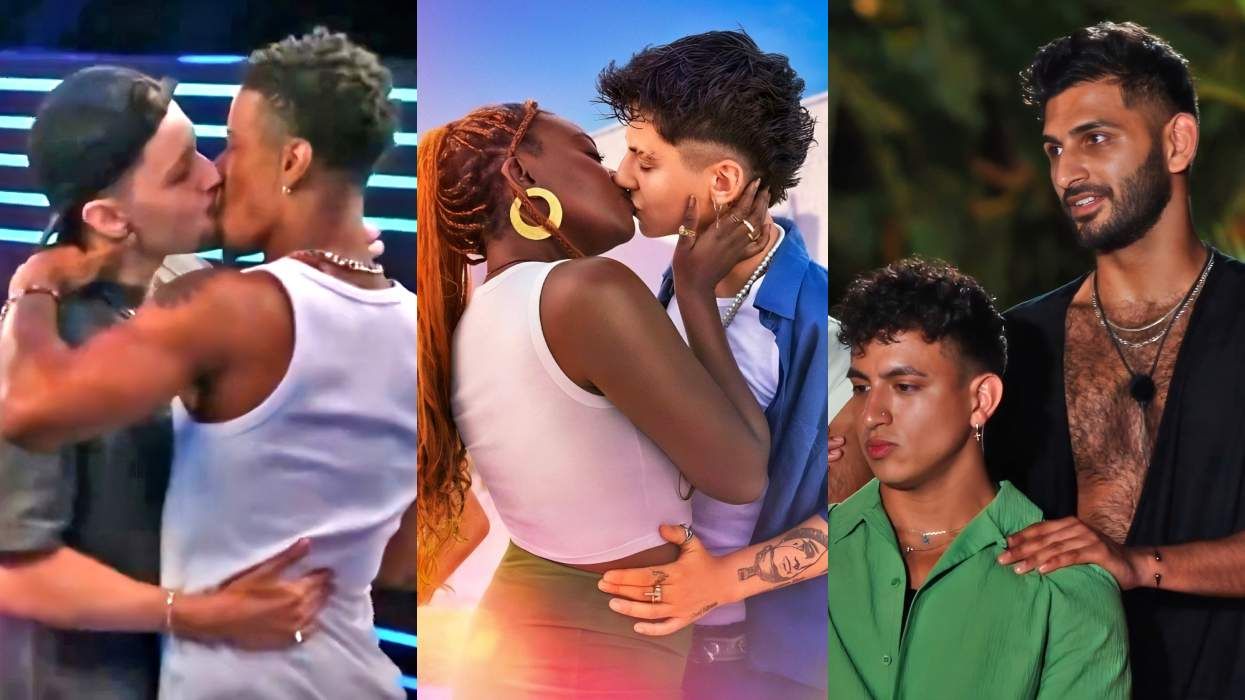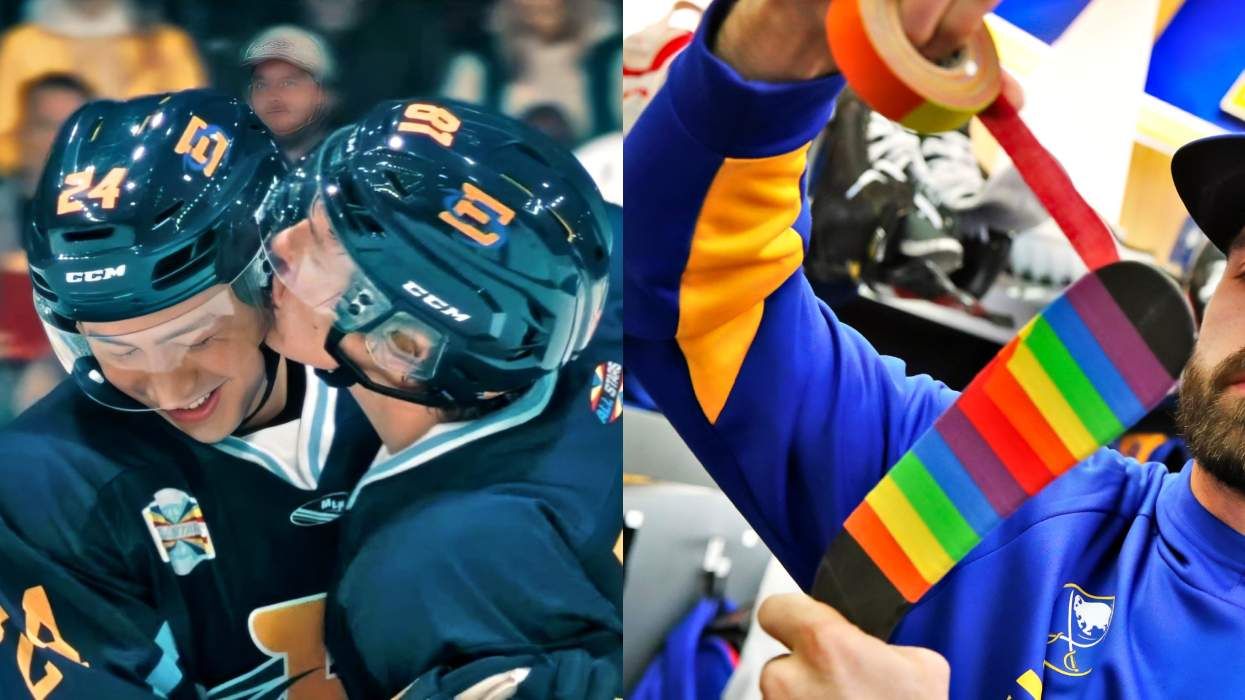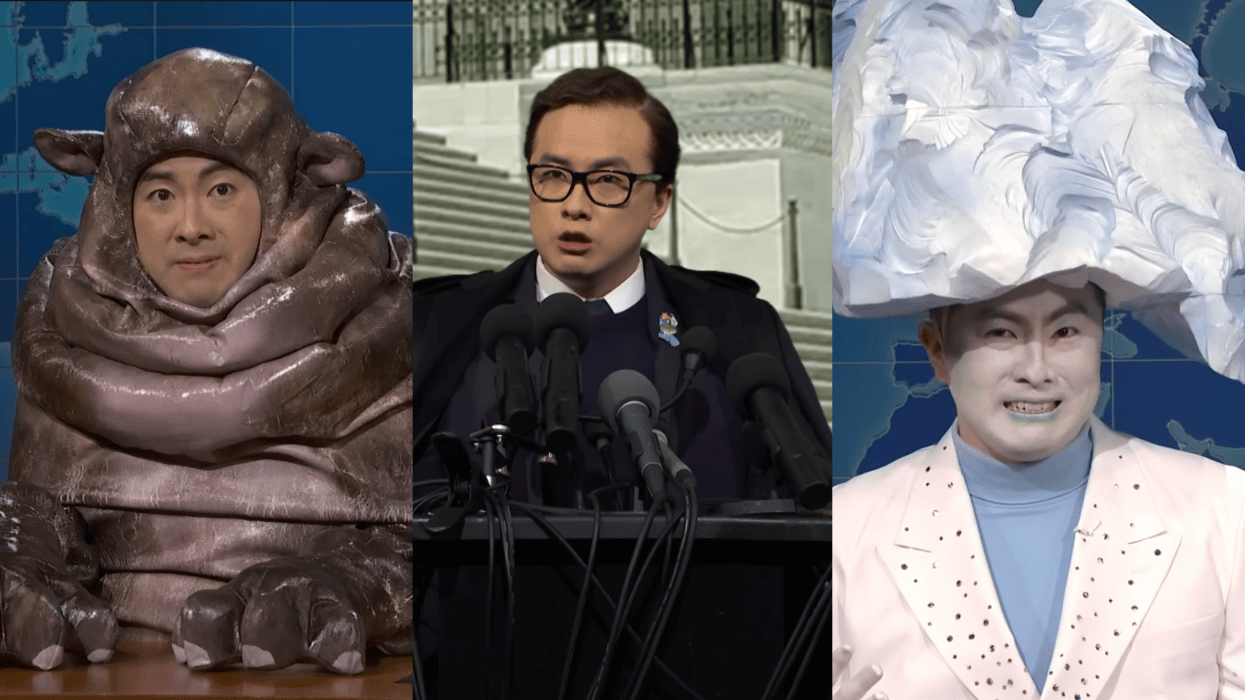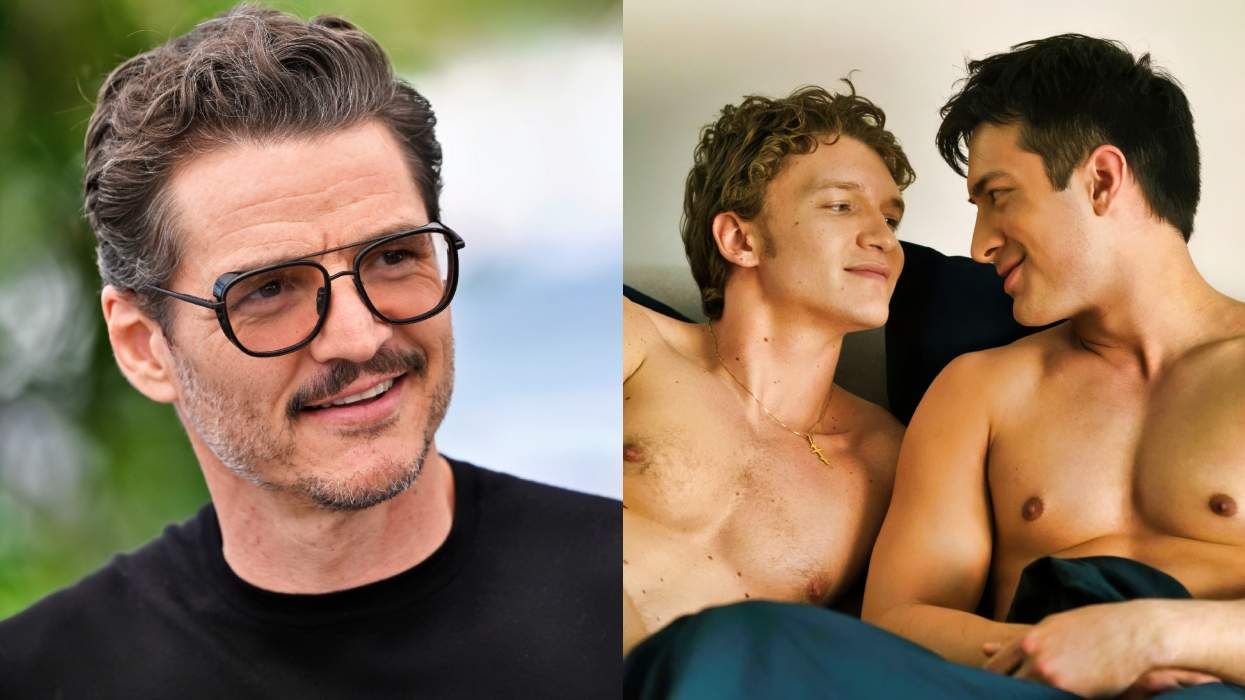It's rare to find a Hollywood heavyweight who has actually read Julia Serano's transfeminist classic, Whipping Girl. Even rarer still is a woman such as Jill Soloway, whose work as executive producer of Six Feet Under, showrunner for United States of Tara, and the writer/director of the Sundance darling Afternoon Delight has made her a mini-cult figure among fans of quirky, gay-friendly television and authentically-female-centric indie films. For Soloway's newest project, Transparent, she bought 250 copies of Serano's book for her cast and crew, has turned Paramount's restrooms gender neutral, and she's come out -- about having a father who is a trans woman -- all in an effort to get it right with this deeply personal new series, which premieres on Amazon Prime on September 26.
Transparent is, for Soloway, a vehicle to explore the "legacy of genderqueerness in a family." And Soloway, who has so far identified as a straight woman (though that may be changing), the show is her chance to put forth a queer and trans-liberationist message, to subvert gender norms and perceptions, and to implement her own form of "transfirmative" action (by having 12 regular characters portrayed by trans actors and a crew that is nearly a quarter out LGBT professionals). More than anything, however, the series is her chance to explore the story of a family like hers: a nice Jewish family transitioning together, watching the pieces fall in place, and figuring out what it all means for us, for her, for America. For this interview, I spent time asking some of the questions I didn't think mainstream publications could muster and was left impressed by Soloway's chutzpah.
Out: My husband is transgender, so I was incredibly thrilled to see Transparent got picked up. How did the idea for the show come to you?
Jill Soloway: It's an idea that's always sort of been there for me, I think, ever since I was working for Six Feet Under. I felt really strongly that I wanted to do a family show of my own. I think in some ways, Six Feet Under was about a queer family that didn't really know. Death was kind of this metaphor for the unknown, and sex was a sort of way that people acted out on Six Feet Under, and love was kind of the "unspoken." I wanted to do a show one day that would be about a family where the sex and love was more on the surface. Rather than a parent dying in the first few minutes, it would be a parent being born. Asking the question: "What did it feel like to have a family member that we never knew was there but who was there?"
What was it like having the pilot out there and having people vote on it? Just putting the pilot out there for people to see online is a really different idea than traditional TV.
I think things just went beyond my wildest dreams. I think, as artists, we always hope that there's going to be that moment where your art hits the public and people go: "Yay! You're good. We love you." And then I made my first feature, Afternoon Delight, a couple years ago, and I think I went into Sundance and the release of it with this feeling of, I made something awesome and people are going to love it. And a lot of people loved it; a lot of women loved it. But there were some people who just hated it. Some men hated Afternoon Delight; they felt like it almost didn't fit into the paradigm. It sort of asked people to see both good and bad in mothers and sex workers. Like the mom and the sex worker are constantly trading back and forth: "I'm a good person; I'm a bad person." It's just too much for the world, so I was surprised, actually, that even though I had set out to make a story about an "unlikeable" woman; I had to remind myself that, Oh, some people are not going to like her. And some people didn't.
I think the criticism of Afternoon Delight came about because it upended the whole Madonna/whore mythology and that makes it really threatening.
Yes, I think a lot of men are really dependent on that for the structure of their psyche. I think they really come alive to their own sexuality around what a good girl asks of them and what a bad girl asks of them. I had this idea about porn, and it might be too much for this, but we ended up getting it in the show. Allie has a three-way, and she talks about herself as the slut, and her sluttiness insists these two men must fuck her at the same time. So they use her to be able to actually have sex with each other, which is what they really want to do anyway, but they could never admit it because this is such a homophobic culture.
We were talking about the idea of porn, in particular porn where there are multiple men around, how come nobody mentions that it's actually the gayest thing in the world--but it's what straight man love to watch.
Two men, three men, and they have dicks and they're watching dicks: it's like the slut is their excuse to be homoerotic. I had this conversation about "What is the purpose of the slut?" The slut allows men to be homoerotic because men have to watch porn so now they are watching other men have sex and the slut allows them to be homoerotic. To me, that felt like the kind of idea that could explode the planet. Allie says it in episode three. To me, this is an idea about gender; it goes beyond sexuality; it says I get to be the girl by fucking the slut while you're fucking her. I get to be the girl. I mean, this is like, [laughs] it's just amazing, these amazing ideas [on the show].
My husband transitioned nearly a decade ago but he's still really baffled by why straight men sit and watch pornography together. He always says, "Why would you watch pornography with somebody you didn't want to have sex with?"
I think the truth is probably everybody wants to have sex with everybody but they're only certain people that you can admit socially to wanting to have sex with so everything else get sort of subverted into these things like hatred or things like discrimination or things like, "I would never cross that line" -- these arbitrary lines about what it means to be a man or a woman or gay or straight.
Transness is such a huge thing because it calls into question everything. It calls into question gayness, you know. It calls into question: "Oh. I'm a gay man who will only have sex with another man." Well, really? What if you meet a trans man who may not have the parts that you say you insist on but your gayness is defined by who you love and so you love a trans man. Help me out, you know? Like explain what you do with your gayness now. It's so incredibly revolutionary, we're so at the beginning with this kind of revolutionary idea about gender. Rhys and I had this conversation and [he said]: "Gender freedom for one means gender freedom for all." And freedom for one means freedom for all. To be at zero with that idea, I think it can explode to 100, and we are at a history-making place.
It really seems like Maura Pfefferman's coming out is a total shock to her kids. Have you experienced something like that?
Gosh. That's a good question. [Laughs] My dad came out to me three years ago as trans. It put a lot of things into perspective for me regarding my family and my understanding of my childhood. In the months and years that followed, the Transparent inspiration flowed pretty freely.
You've always had an affinity for queer characters in particular. Is that because of your sister, Faith?
Well, my sister came out when she was 25, and there was definitely that feeling of, Oh yeah. I've kind of always known my sister is gay, but I haven't known it. So definitely, that helped resonate and I have so many friends who are queer and so many friends who are trans that it just always seemed obvious to me how what a great metaphor being trans is. Being trans is kind of having its moment [in popular culture]; it's been rising and rising and to me it just feels like an incredible metaphor for all kinds of transformation, all kinds of transcendence, all kinds of change.
The big question, I think, that we're asking with this show is: Will you still love me if? Will you still be there if? It just feels like sort of the right question for a family drama and the right time for it.
What's been really fascinating to me are those sort of viral videos of trans kids. Because there are a lot of people who would sort of just otherwise have prejudice and then they can't when they see, "Oh. Here's an 8-year-old boy who actually is a girl. Oh, I love kids." And that's something the gay people didn't have because there weren't children who were 6 or 7 who you could really attach to and love for being gay. So, it's really interesting that there are sort of parents in middle America who are maybe Republican, and there are videos of them saying: "I have a trans kid, and I love my trans kid."
In some ways, I think that Jeffrey Tambor is like a 5-year-old boy or 5-year-old girl in that America already loves Jeffrey Tambor. People love him. So to watch Jeffrey Tambor become Mort and then become Maura, there's already so much of the buy-in that I think the show goes beyond just sort of, political, here's what it's like to know and love a trans person. It's like, here's somebody you already know and love who is trans.
What was lovely too about the casting of Jeffrey is that he is not someone, like Jared Leto, who can move into a very feminine role easily because he's so young and pretty. I think that Jeffrey really reflects some of the trans women I know, who are coming out at middle age, after decades of living as men, and they aren't Laverne Cox. They experience discrimination out in the real world, especially before they are on hormones, because people don't see them as attractive enough to be women.
Yeah. In fact, in the lunch scene with three trans women [is a first], when Maura and Davina talk about what it would feel like to be Shay, to have transitioned early, to be born small, to be born little instead of big. I think it became so politicized in my thinking by Jenny Boylen and Julia Serrano around the questions about trans misogyny as being sort of the quest of 'How well are you passing? Are you beautiful in the same way we want cis women to be conventionally beautiful?' And that there are so many places where people just assume that trans women just want to be the most feminine kinds of women, and I think it's just kind of, in some ways it's just cis privilege to be like, 'I'm not going to wear makeup. I'm not going to have my hair done. I'm not going to be all va-va-voom sexy.' But I feel like, boy, that's really something I want to get into as soon as possible.
There's a line at the end of the episode where Devina says to Maura, "There's a big difference between being a woman and being a beautiful woman." And that's what I think transitioners have to deal with: Not only are they not beautiful, but sometimes they're noticeable and a lot of people think something might be about transphobia, but when you look closer, it's really about trans misogyny because it's about them looking the way men want women to look.
I think one of the great things about the show is that it's not just about Moira's experience. We're getting glimpses of everybody's experiences in the family. On the back end, it seems like Allie, the youngest daughter, shares some similarities with you?
Yeah, I think in all three kids. I find myself in Allie, I find myself in Josh and in Sarah. My sister Faith is also a writer on the show. She moved to L.A. to write on the show, and I think Faith is a bit of Allie and Faith is a bit of Sarah and Faith is a bit of Josh. I think both Faith and I can be found in all three kids regardless of their gender. And yeah, you know, we really want to experiment with what it means to have an emotional, social and, potentially, spiritual legacy with gender queerness in your family and wrestling with, you know, what parts of it you identify with and what parts you reject, what parts you want to romance and what parts you want to demonize. Dad's admission becomes a prism for these three kids to understand themselves, to understand what they don't understand about themselves. Like it's just like year one. What could happen over the course of five years or six years of an entire show to each kid? I think what we saw in the pilot are these people wrestling a little bit with love, with sex but what would happen if we got to watch these three kids wrestle with the question of their own gender identity.
Could this show have been made with one of the networks?
I don't think so. This is what you were asking about with Amazon getting the reviews. This kind of conversation that we're having, these idea about really questioning feminism, queerness, like I often ask myself, How many people are there in the world that actually give a shit? You know? Are there enough? What will happen when the show airs on Amazon? I think, after Afternoon Delight, my expectation was that nothing would happen. I was kind of expecting it would take a month for the word to really get out and then at the end of that month Amazon would notice some people liked it, enough people liked it, and say, "Yeah, we'll order it." But the instantaneousness of it being distributed and Twitter and the reviews and like over the course of that first weekend -- everybody was loving it. It was so overwhelming and so exciting. I think our expectations were really low, so it was really exciting to see that, No, people really love it. It's working, tonally it's working, and I didn't get the feeling that it was just gay people, queer people, trans people only saying: "Watch this." It was all kinds of people. Like, lots of Jewish families; generations of Jews were like, "I showed this to my parents." Or, "I watched this with my kids." I think ultimately the fact that what it feels like when you watch it is a like a sort of a family show like Thirtysomething or even, dare we all say it, All in the Family or Cosby. I think our aspirations are really for it to resonate first on that level, and I guess the pilot did.
Bruce Jenner has been hounded by the tabloids that think he's transitioning. Kardashian fame aside, I can't help notice some similarities to Mort's life. If any bit of that were true, I'm wondering what advice you would give to Bruce Jenner.
I need to go meet Kim. [Laughs] I mean, if we could arrange this, we need to go see Kim; I need to see Kourtney; I need to see Khloe. I relate more to the daughters and I want them to be very welcoming to their dad. I had heard this actually, about Bruce, before the tabloids. It's really interesting because the gap of information between the fetish cross-dressing story and the trans woman story out there in the world is just giant. I'm so excited we're going to get to build across that bridge, these questions of what do secret cross dressers and trans women have in common.
I heard two years ago: Oh, Kris knows he has a closet behind the closet where he has women's clothes. I heard that Kris knows and all the kids know and that's just part of Bruce's kink. I mean, it's hard for me to tell whether or not Bruce Jenner is transitioning. I really hope they are because how cool would that be. I really hope it happens on the Kardashians at the exact same time that Transparent comes out. People and theorists can watch them together. Watch the Pfefferman kids and the Kardashian kids experience it together. It's even more in the zeitgeist then ever if it's true. It'd be amazing if that was season 4. Kanye would be involved. Kanye would need to weigh in. Big stuff. [Laughs]
And then Kanye could talk to R. Kelly.
Kanye could go see R. Kelly. When I heard R. Kelly's child is in transition, it's like, what other choice would R. Kelly's kid have? If R. Kelly is your dad...how in the world could you possibly grow up with that dad?
The R. Kelly thing is funny to because, on the one hand, he says, "Don't call her my son." And he's very angry about that. But then he says stuff like, Well, I have to pay for college. I have to do this and that for my kids, because you do stuff for your kids and you love them no matter who they are or what they do. I'm thinking he doesn't even know how he feels yet.
I think it's early days for the world, and I think there's going to be a million more R. Kellys. There's going to be so many people whose kids are going to transition and I have so many friends now whose kids are transitioning. It's so common.
Back to the show: What happens if you do one season of this and Amazon doesn't renew it?
[Gasps] It's crossed my mind that that's possible, even though I think it's pretty unlikely. But if it does, it'll just be this beautiful, five-hour film... about a family that you can hopefully cram all together into one viewing and watch together and it'll hold together as its own thing. That's, I think, part of coming from the world of independent film, the way we're writing it, the way we're scheduling it, the way we're experiencing it. We aren't experiencing it as 10 episodes of television; we are experiencing it as one five-hour chunk.
Sometimes I look at what we are doing, and I have this hope that people will be like, "I can't go on until I go back and start all over again. I need to go back to episode one and start all over again before I can get to eight, nine, and 10 because seven has this incredibly climatic ending where, like you [exhales], and then you keep going.
My hope is that the show is going to be so sort of emotional, spiritually, sexually [laughs] revolutionary that you won't just watch it once and that you might need to start all over again before you get through it. That you come face to face with it on so many different levels. I mean, this sort of braid of things that I am always trying to make happen in everything I do which are: funny, real and dirty. So I want people to be laughing, I want them to be crying and I want them to be turned on and so I want them to have all three of those happening simultaneously, but if not simultaneously in the same scene, in the same episode and so that's all. Who knows, maybe the show can do something that hasn't been done before.



